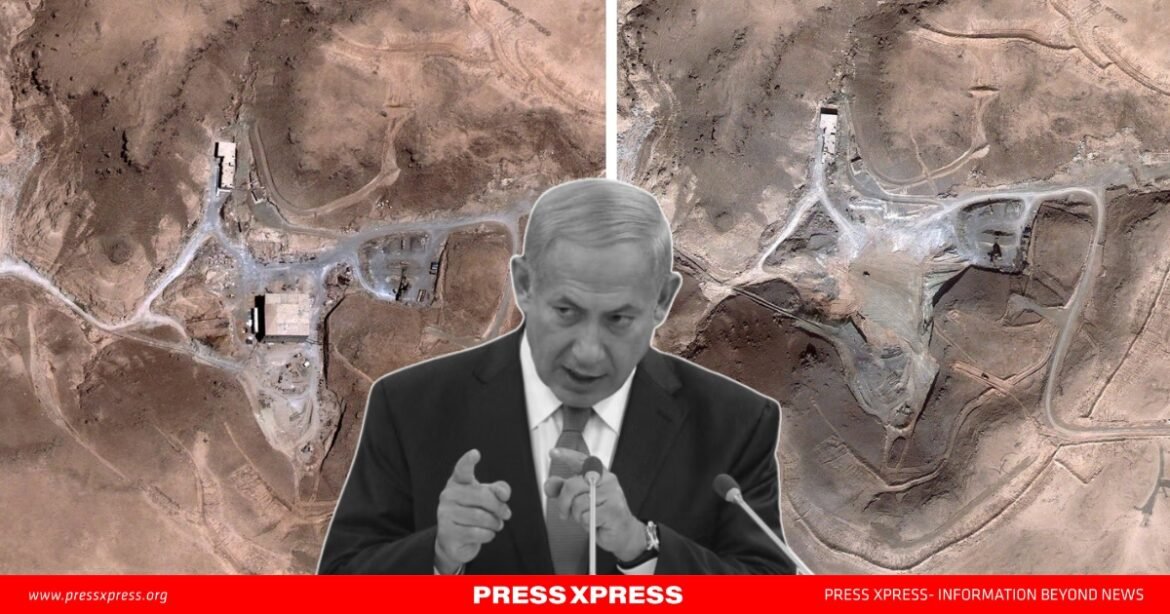In a move that has drawn global attention, Israel reportedly conducted a significant airstrike on a weapons depot in Tartus, Syria, on December 16, 2024. While Israeli officials have not commented on the specifics of the attack, reports suggest the strike destroyed a Scud missile facility. However, speculation is growing over the nature of the explosion, with claims that a small nuclear weapon may have been deployed.
Unprecedented Explosion and Seismic Activity
The attack reportedly triggered a magnitude 3 earthquake, with tremors felt as far as Iznik, Turkey, more than 820 kilometers away. Russian media outlet Sputnik reported that the blast may have involved a new missile launched from an Israeli warship. Other unverified sources have raised the possibility of a B61 nuclear bomb, a weapon developed by the United States, being used in the strike.
Adding to the speculation, the European Union’s Radioactive Environmental Monitoring recorded a spike in radiation levels in Turkey and Cyprus approximately 20 hours after the explosion. This increase in radiation has fueled concerns that the blast was caused by a nuclear device, albeit a small one.
The strike comes amidst heightened military activity in the region. On Sunday, December 22, Israeli forces were observed operating along the ceasefire line in the Golan Heights, following the United Nations Security Council’s decision to extend a peacekeeping mission between Israel and Syria.
The UN Disengagement Observer Force (UNDOF), which monitors a 400-square-kilometer demilitarized zone established after the 1973 Arab-Israeli war, has expressed concern about escalating tensions. While Israel describes its military activities in the area as a “limited and temporary measure” for border security, its continued presence in the demilitarized zone has raised questions about potential violations of the ceasefire agreement.
A Changing Syrian Landscape
The strike occurred shortly after a rebel offensive ousted Syrian President Bashar al-Assad earlier this month. In the wake of Assad’s removal, Israel has reportedly moved troops into the demilitarized zone. While Israeli officials insist that these moves are precautionary, there has been no indication of when the troops might withdraw.
The ouster of Assad has further destabilized the region, creating a volatile environment that could exacerbate military confrontations. Both Israeli and Syrian forces are prohibited from operating in the demilitarized zone under existing ceasefire agreements, making Israel’s actions a contentious development.
Nuclear Concerns and International Reactions
The possibility of a nuclear device being used has sparked widespread concern. While there is no conclusive evidence to confirm the use of a small nuclear bomb, the reported radiation spike has prompted calls for transparency and an independent investigation.
If confirmed, such an attack would mark a dramatic escalation in the use of force in the region, with significant implications for international security. The United Nations and other global bodies are likely to face increasing pressure to address the reports and mediate tensions between Israel and Syria.
Questions Remain
As the situation develops, critical questions remain unanswered. Was the explosion the result of conventional weaponry, or did it involve a nuclear device? How will the international community respond to the reported spike in radiation? And what do these developments mean for the fragile balance of power in the Middle East?
For now, the incident underscores the growing volatility in a region already beset by conflict and political upheaval. With tensions high and the stakes even higher, the world is watching closely.


